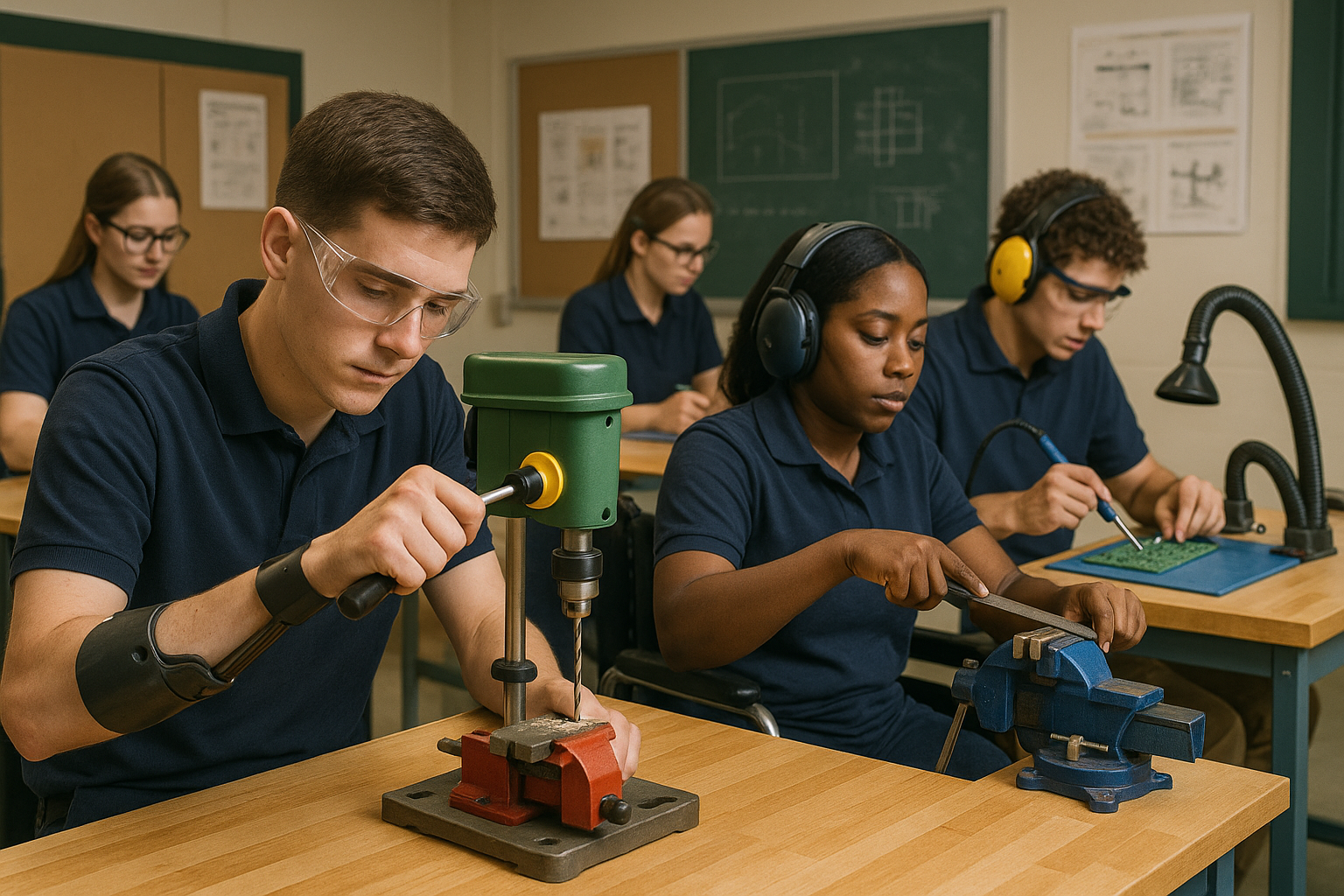Transform Future Skills With Vocational Curriculum Special Education
Unlock the potential of your future by exploring how vocational curriculum special education can transform your skills, and see these options to discover tailored pathways that fit your unique needs.

The Importance of Vocational Curriculum in Special Education
Vocational education is a critical component for students with special needs, providing them with practical skills that are directly applicable to the workforce. This educational approach emphasizes hands-on learning and real-world application, which can be particularly beneficial for students who thrive in non-traditional learning environments. By integrating vocational training into special education, schools can offer students the opportunity to develop skills that match their interests and strengths, ultimately leading to increased independence and job satisfaction.
Opportunities and Benefits
For students in special education, vocational training offers numerous benefits. It equips them with the necessary tools to enter the workforce confidently and competently. According to the National Center for Education Statistics, students who participate in vocational programs are more likely to be employed after graduation compared to those who do not1. Moreover, vocational training can lead to higher job retention rates and improved job performance, as students are better prepared for the specific demands of their chosen careers.
Vocational education also provides students with the opportunity to explore various career paths, allowing them to make informed decisions about their futures. This exploration can be facilitated by partnerships with local businesses and industries, which often offer internships and job shadowing experiences. Such collaborations not only enhance the educational experience but also help students build professional networks that can be invaluable in their job search.
Types of Vocational Programs
There are a variety of vocational programs available to students in special education, each designed to cater to different interests and career goals. Common programs include:
- Technical Skills Training: Focuses on specific trades such as carpentry, electrical work, or plumbing.
- Health and Human Services: Prepares students for roles in healthcare, social work, and other service-oriented fields.
- Information Technology: Offers training in computer programming, network administration, and other IT-related skills.
- Business and Finance: Covers topics such as accounting, marketing, and management.
These programs are tailored to meet the diverse needs of students, ensuring that they receive an education that is both relevant and practical.
Financial Considerations and Support
One of the key considerations when exploring vocational education is the cost. Fortunately, there are numerous financial aid options available to students in special education, including scholarships, grants, and government-funded programs. The Individuals with Disabilities Education Act (IDEA) provides funding to support vocational training for students with disabilities, making it more accessible and affordable2.
Additionally, many vocational programs offer reduced tuition rates or sliding scale fees based on income, ensuring that financial constraints do not hinder a student's ability to pursue vocational education. It's important for students and their families to research and browse options for financial support to find the best fit for their needs.
Real-World Success Stories
Numerous success stories highlight the transformative power of vocational education in special education. For instance, Project SEARCH is a program that provides internships and employment opportunities for young adults with disabilities. Participants of Project SEARCH have achieved impressive employment outcomes, with over 70% securing competitive jobs upon completion of the program3.
These success stories underscore the importance of vocational training in helping students with special needs achieve their career goals and lead fulfilling lives.
Vocational curriculum special education offers a unique and valuable opportunity for students to gain the skills and confidence needed to succeed in the workforce. By exploring these educational pathways and considering the various options available, students can embark on a journey that leads to personal and professional growth. For those interested in learning more, visiting websites dedicated to vocational education can provide additional insights and resources to help navigate this promising landscape.